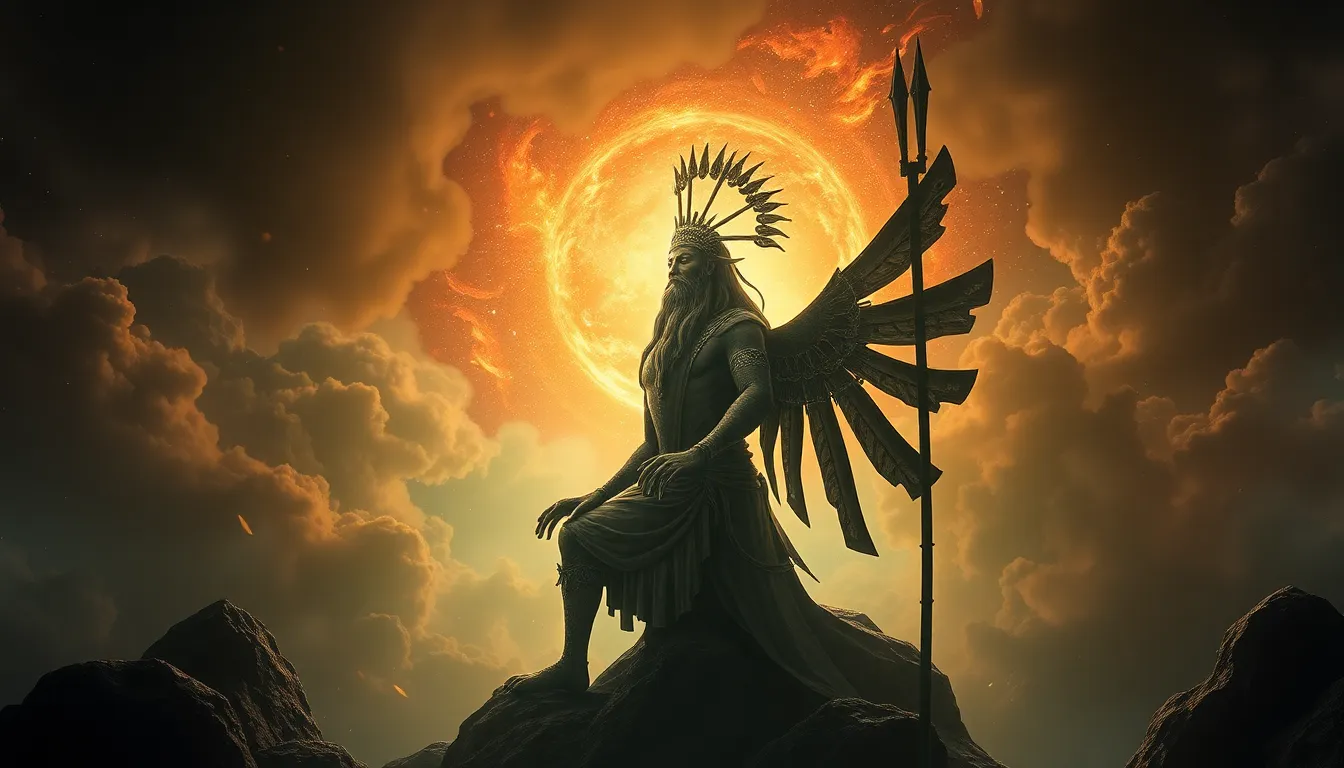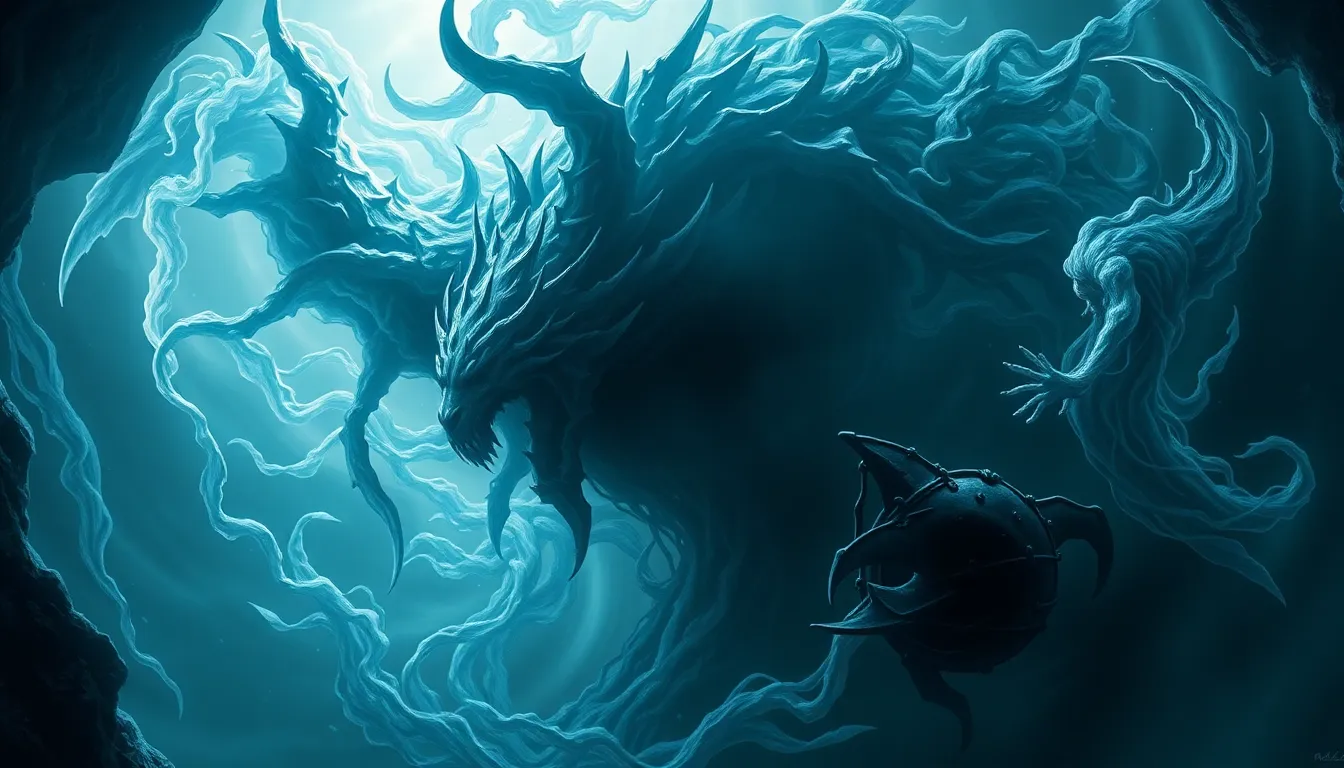The Legacy of Ancient Deities: Lessons for Today
Introduction: Understanding Ancient Deities and Their Significance
Ancient deities represent the divine figures worshipped by various cultures throughout history. They embody the values, beliefs, and narratives of societies, often serving as personifications of nature, morals, and human traits. These deities played critical roles in the lives of people, influencing everything from daily routines to large-scale societal norms.
The influence of mythology on human civilization is profound. Myths provided explanations for natural phenomena, established moral codes, and offered a framework for understanding human existence. Through stories of gods and goddesses, ancient peoples conveyed complex ideas about life, death, love, and justice, shaping the cultural identities that persist even today.
The Pantheon of Ancient Deities: A Comparative Overview
Across the globe, various cultures have developed rich pantheons of deities, each with their unique characteristics and stories. Here is a brief examination of key ancient deities from different cultures:
- Greek Deities: Zeus, the king of the gods; Athena, goddess of wisdom; and Poseidon, god of the sea.
- Roman Deities: Jupiter, the Roman counterpart of Zeus; Venus, goddess of love; and Mars, god of war.
- Egyptian Deities: Ra, the sun god; Osiris, god of the afterlife; and Isis, goddess of motherhood and magic.
- Norse Deities: Odin, the all-father and god of wisdom; Thor, god of thunder; and Freyja, goddess of love and war.
Despite the differences in their stories and attributes, common themes and archetypes emerge among these deities, such as the struggle between good and evil, the quest for knowledge, and the significance of fate.
Moral and Ethical Teachings from Ancient Myths
Ancient myths are rich with moral and ethical teachings that remain relevant today. The stories of deities often convey important lessons about human behavior, justice, and the consequences of one’s actions. For example:
- The Story of Prometheus: In Greek mythology, Prometheus defied Zeus by giving fire to humanity. This act of rebellion teaches the value of knowledge and the peril of defying authority.
- The Judgement of Paris: This tale highlights themes of beauty, desire, and the consequences of choices made in a moment of temptation.
- The Tale of Osiris: Osiris’s resurrection symbolizes hope and the belief in life after death, imparting lessons on love, betrayal, and redemption.
These stories serve as moral compasses, guiding individuals in their decision-making and ethical considerations.
The Role of Deities in Shaping Cultural Identity
Ancient gods and goddesses have profoundly influenced the cultural practices and beliefs of their societies. Their stories have inspired festivals, rituals, and artistic expressions that resonate through generations. For instance:
- Festivals: The Greek Olympic Games honored Zeus and celebrated athletic prowess and competition.
- Rituals: The Egyptian practice of mummification was deeply tied to beliefs about the afterlife and the god Osiris.
- Art: Renaissance art often depicted mythological themes, reflecting the cultural reverence for ancient deities.
Through these expressions, societies solidified their identities and values, fostering a sense of belonging and continuity.
The Psychological Perspective: Archetypes and the Human Experience
From a psychological standpoint, the concept of archetypes, as introduced by Carl Jung, connects deeply with ancient deities. These archetypes represent universal symbols that resonate within the human psyche. Deities embody various aspects of the human experience, such as:
- The Hero: Represents courage and the journey toward self-discovery.
- The Mother: Symbolizes nurturing and unconditional love.
- The Wise Old Man: Embodies wisdom and guidance.
These archetypes remain relevant in modern psychology, as they help individuals understand their own experiences and challenges, allowing for personal growth and self-awareness.
Ancient Deities as Symbols of Nature and Humanity
Ancient deities often personified natural phenomena and human traits, reflecting the environment and human behavior of their times. For example:
- Nature: Gods like Gaia in Greek mythology represented the earth, emphasizing the importance of environmental stewardship.
- Human Traits: Deities such as Aphrodite symbolized love and beauty, exploring the complexities of human relationships.
These representations impart valuable lessons on caring for the planet and understanding human emotions, reminding us of our responsibilities both to nature and to each other.
Gender Dynamics in Ancient Mythology
The portrayal of male and female deities across cultures reveals much about ancient gender roles. For instance:
- Female Deities: Figures like Athena and Isis exemplify wisdom and strength, yet often operate within patriarchal structures that limit their agency.
- Male Deities: Deities like Zeus and Odin often embody power and authority, shaping societal expectations of masculinity.
These dynamics provide insights into ancient societies and provoke contemporary discussions on gender roles and equality.
The Revival of Ancient Wisdom in Modern Spiritual Practices
In recent years, many have turned to ancient deities for inspiration in modern spirituality and neo-paganism. This revival often involves:
- Reinterpretation: Ancient narratives are re-examined, allowing contemporary individuals to find personal meaning.
- Spiritual Practices: Rituals and ceremonies are adapted to honor these deities, creating a connection to ancestral wisdom.
This resurgence of interest in ancient deities impacts societal values, encouraging a return to nature-based spirituality and holistic practices.
Lessons from Ancient Deities in Leadership and Governance
The qualities attributed to deities can inform modern leadership practices. For instance:
- Wisdom: Leaders can learn from the wisdom of Athena, promoting thoughtful decision-making.
- Courage: The bravery of Thor can inspire leaders to face challenges head-on.
By studying these qualities, contemporary leaders can apply ancient lessons to improve governance and organizational dynamics.
Conclusion: Bridging the Past and Present
The legacy of ancient deities continues to resonate in contemporary life, offering insights into human behavior, ethics, and culture. By exploring these narratives, individuals can gain a deeper understanding of themselves and the world around them. Embracing the lessons from ancient deities can foster personal growth and contribute to a more thoughtful and compassionate society.


